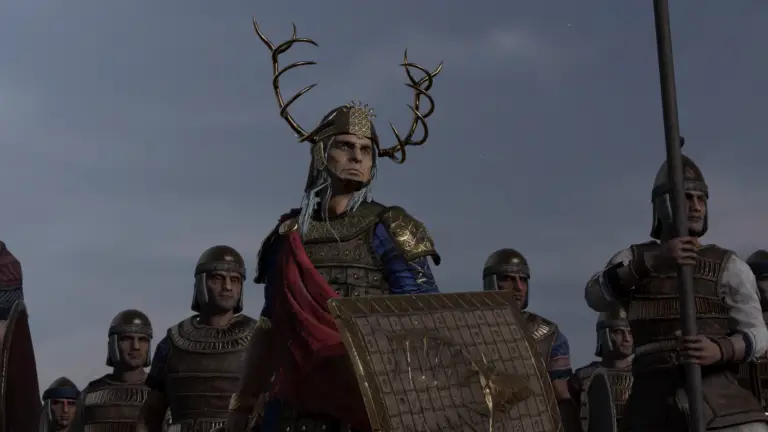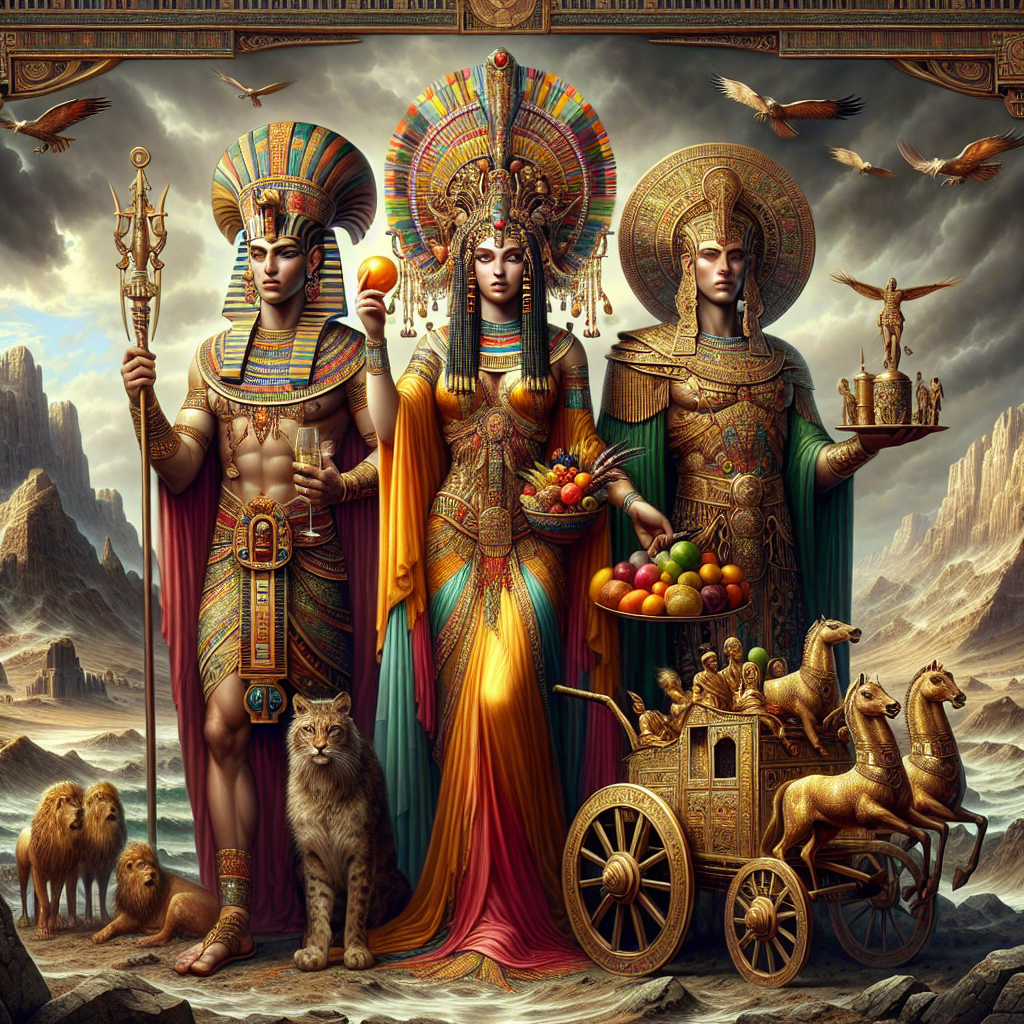Ancient Civilizations of the Late Bronze Age
The monolithic monuments, the dalliances of Cleopatra, the headgear and thick eyeliner worn by men and women alike; Ancient Egypt has earned its spot as one of the most iconic civilizations of all time. But the New Kingdom wasn’t the only great civilization hanging around the eastern Mediterranean during the late Bronze Age. Total War: Pharaoh, a strategy game that allows players to delve into this historical period, features not only Egypt but also its closest neighbors and biggest rivals: Canaan and Hattusa.
Over the Mediterranean to the north was Hattusa, an Anatolian people whose empire spanned modern-day Turkey and Syria. Then, nestled between Egypt and Hattusa was Canaan, a rugged, diverse people determined to stake their place among their larger neighbors. Each of these factions brings a unique flavor to the game, offering players a chance to experience the rich tapestry of ancient geopolitical dynamics.
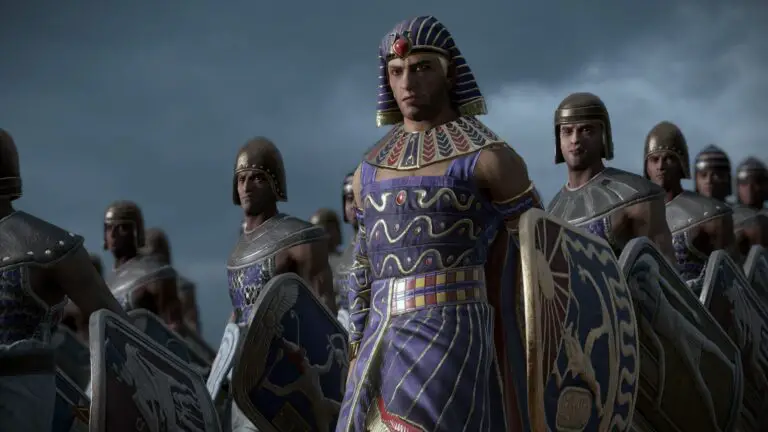
Egyptians
With a grand empire stretching along the banks of the Nile and shores of the Mediterranean, Egypt seemingly has all the advantages. However, it’s also the biggest target, vulnerable to raids from the Sea Peoples and desert raiders. Moreover, it has dozens of factions vying for control, resources, and legitimacy, making the political landscape quite cosy as everyone starts scrambling for power.
The gold-laden headline act of Total War: Pharaoh has an appropriately star-studded line-up of leaders to choose from:
- Seti: The aggressive son of the incumbent pharaoh Merneptah, poised to take the throne and expand Egypt’s territories.
- Tausret: A shrewd tactician with a strong defensive and economic start, capable of building a formidable economy.
- Ramesses: The young upstart determined to outshine Ramesses II, with elite troops and two Court Actions each turn.
- Amenmesse: The embittered eldest son of Merneptah, leveraging his wealth as the Viceroy of Kush to fund his ambitions.
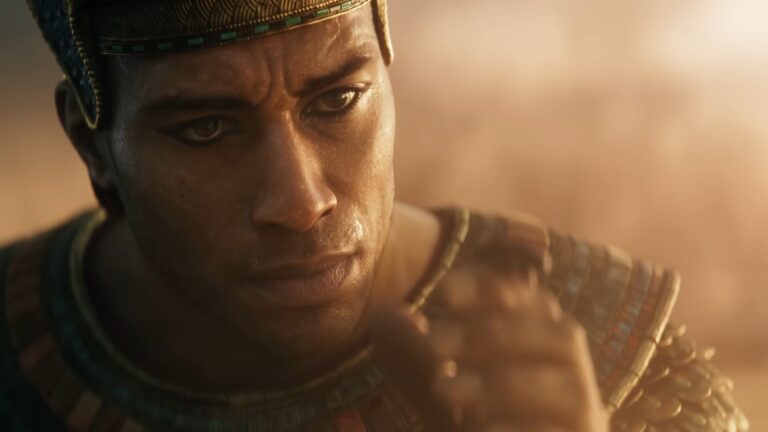
Hittites
Across the Mediterranean from Egypt, in modern-day Turkey and Syria, lies the vast kingdom of Hattusa. One of the great powers of the late Bronze Age, the Hittites were known for their military prowess, thanks in large part to their heavy chariots and being one of the first known civilizations to use iron weaponry. They came into conflict with the Egyptians over trade routes and natural resources, culminating in the Treaty of Kadesh. In Total War: Pharaoh, players get to dictate their history—be it towards more peaceful or violent ends.
| Suppiluliuma II | Kurunta |
|---|---|
| The last Great King of the Hittites, formidable in battle with heavily armored units and influence in the Hittite Court. | A tyrant driven by jealousy, vicious on the attack, and gains extra income from razing cities. |
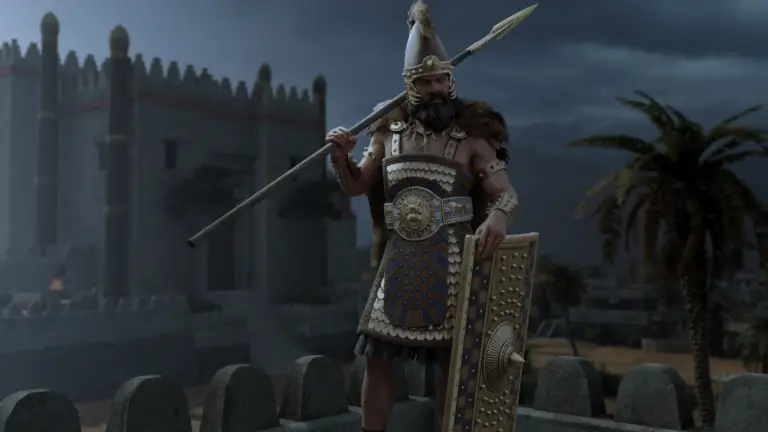
Canaanites
Long overlooked as a land bridge connecting North Africa with Anatolia, Canaan has struggled to gain respect among the powers surrounding it. But during these chaotic times in Total War: Pharaoh, you can lead the Semitic civilization to finally rise up and challenge those that have dared to dismiss them.
Every great ancient conflict needs its barbaric ‘bad guy.’ The rugged, ever-ready raider who’s interested more in plundering civilization than upholding it. In Total War: Pharaoh, that’s Irsu. With powerful, costly units, he’ll need to keep fighting to keep resources coming in, because this guy isn’t one for town management. It’s a high-chaos, high-intensity play style based around war, pillaging, and all the spoils those bring.
Contrasting Irsu’s barbaric image, Bay was a shrewd Canaanite who had managed to ingratiate himself in the court of Egyptian Pharaoh Seti II. Favouring scheming and sneaking over direct conflict, Bay benefits from bountiful resources produced by unique buildings under his leadership. In the Royal Court, Bay can use the ‘Assume’ command to take over plots from his rivals, and in battle all his units get the ‘Ambush’ trait, making them as sneaky on the battlefield as he is in politics.
So there are plenty of big personalities to choose from. Schemer or soldier; heir-apparent or shunned son? Who will you side with?
